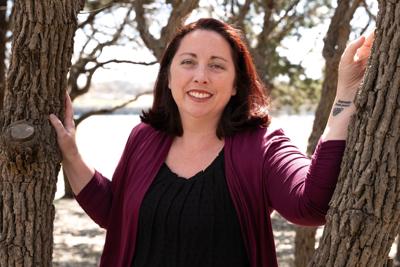According to the Washington Post, “Homeschooling is now the fastest-growing form of education in the U.S.” I vividly recall the start of my homeschooling journey many years ago and feeling as if I was “jumping off a cliff without a parachute.” As a veteran homeschool parent, one of my goals is to share the knowledge I’ve gained over the years to support other homeschool parents on their journey.
You’ll find future installments on various homeschooling topics in these “Opinion Shaper” columns. Still, today, I’ll start with four essential steps for new or prospective homeschoolers. Let’s dive in.
Determine your whyI spent 10 soul-crushing years working in education for a pharmaceutical giant. While corporate America was not for me, I took some of its common practices and applied them to my homeschool life.
If you’re planning to start a company, you’re likely to sit down and hammer out details such as who we serve, what sets us apart and why this company is needed within our field. Those questions are also a great way to set your compass for your future homeschooling journey. If you have decided to homeschool, there are likely some big reasons. Perhaps the classroom setting doesn’t work for your child(ren). Possibly, your child is autistic and benefits from a different learning style. Just about every homeschool parent will have a different “why.”
However, as we begin homeschooling, it is very easy to subconsciously revert to how things are done in the school system. It is what we know. It is what society tells us is the path to success. A homeschooling road map customized to your “why” is an excellent tool for periodic assessment of your progress or a confidence booster on days when doubt kicks in.
Find out what kind of homeschooler you are
“Homeschooling” is very broad. It encompasses everything from school at home to child-led learning. It is essential to understand the core of your homeschooling and learning style.
Head to Google and search “What kind of homeschooler are you?” and you’ll be presented with multiple online quizzes. I took a few of them because my personality can sometimes be described as “wanting to kill a fly with a sledgehammer,” and I wanted to validate the results by noticing trends. But the results were very telling and, in some ways, surprising. (If you take the quiz, please email hub.of.curiosity1@gmail.com with your quiz results. We can explore various results in future Opinion Shaper discussions.)
Take a breakIn the homeschooling world, we have a term called deschooling (not to be confused with unschooling (which is a topic for another day and something entirely different). It is typically recommended for new homeschoolers.
The term was coined by an Austrian philosopher named Ivan Illiich and refers to a time and process of transition from the school system to homeschooling. I liken the “de” in deschooling to “detoxing.”
Whether we realize it, we’ve all been conditioned to believe education looks one particular way. The reality is that couldn’t be further from the truth, and undoing a lot of that programming takes time and work. The longer your child has been in the school system, the longer your deschooling period should be.
Many people recommend one month per year in the school system. Often, this is where the panic sets in, and you start fearing that taking time off will cause them to “fall behind.” But guess what? That fear reaction is part of the programming and reinforces the need for this deschooling period.
Become a spongeMuch of your deschooling phase can be dedicated to learning. These preparatory steps involve finding a strong community of veteran homeschoolers who willingly share advice and soaking up as much information as you can in the form of books, podcasts and more.
The fastest and easiest way to find community is to search “homeschooling” on Facebook and filter for groups. You’ll find groups for secular families, parents of neurodivergent kids, local groups, global groups and everything in between.
You will likely have noticed by now that I have yet to mention curriculum, which was not an accidental omission. I intentionally left that out for a range of reasons, from it not being necessary to the fact that there’s time for that later. Building your homeschooling future is like building a house; you need a strong foundation. Today, we’ve built the foundation, and in my next column, we’ll talk more about what comes next. Stay tuned.






